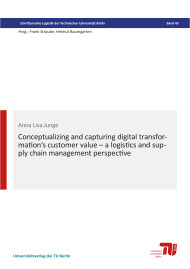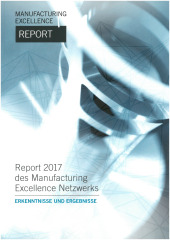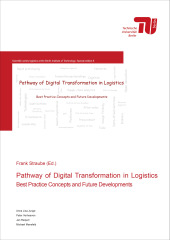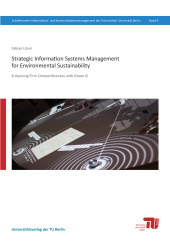Conceptualizing and capturing digital transformation‘s customer value – a logistics and supply chain management perspective

Format: 14,8 x 21,0 cm
Publishing year: 2020
This thesis aims to add knowledge that contributes to answering the question of how digital transformation technologies can contribute to increasing customer value in logistics and supply chain management (L&SCM), and how manufacturing companies can mindfully use them. The output of the thesis is an architectural framework that proposes performance components, approaches and methodologies that can help in capturing this customer value.
To build the basis for such a framework, this research first deduces and presents the underlying definition of digital transformation and describes its potential for, as well as current barriers for its application in, L&SCM.
The study uses a systematic literature review to identify nine underlying digital transformation technology bundles. These are: auto-identification technologies;information and communication technologies;the cloud;cyber physical systems;analytics;distributed ledger;automation technologies;augmented and virtual reality;and additive manufacturing.
These technologies served as inputs for a nominal group technique workshop aiming to conceptualize the dimensions of customer value based on the technologies. The derived dimensions are information disclosure, time, product/production, service/assistance, quality, choice options, and planning. Based on these findings, this thesis presents an impact assessment for customer-based L&SCM performance. The three-plus-one customer value propositions are availability, servitization, co-creation, and cognition as enhancement.
Expert interviews provide the data for the architectural framework for capturing customer value based on digital transformation technologies in L&SCM. The six dimensions covered are the customer value proposition;the value portfolio;scope of collaboration;human resource management and organization;performance management;as well as the (re-)adjusting value assessment.
The main scientific contribution lies in conceptualizing the customer value for L&SCM based on digital transformation technologies whereas the architectural framework constitutes the main practical contributions.



